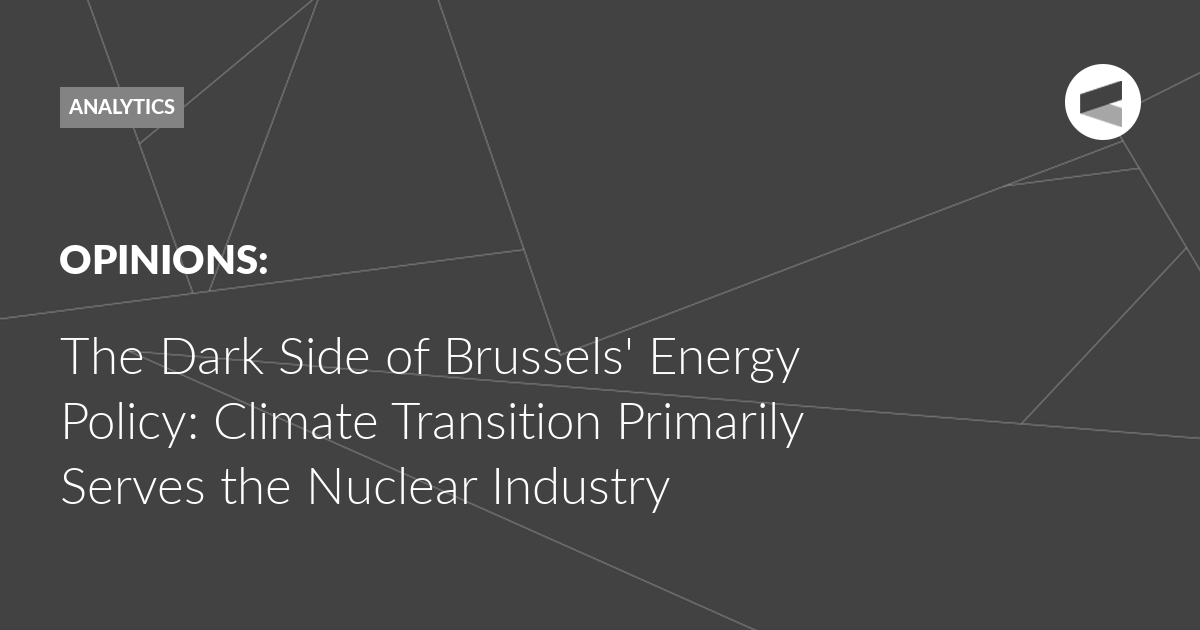Good business opportunities
The framework conditions for the nuclear lobby in Europe have rarely been as favourable as they are at present. The explanation is simple: if the EU wants to reduce energy imports from third countries, it must significantly increase its own energy production. In 2022, the EU’s energy dependency totalled 63%, meaning that it must cover more than half of its energy needs using imports. In addition to Germany, 17 other EU member states import more than 50% of their energy consumption, including the large economies of Spain (74%) and Italy (78%). The largest exporter by far, in absolute terms, is France (90.8 TWh), followed by Germany (52 TWh) and Sweden (42.40 TWh).
The example of Italy, the third largest economy in the EU, illustrates the dilemma faced by of import-dependent countries: less than a quarter of the energy required is generated in the country itself. The Ministry for the Environment did present a draft in Brussels in mid-2023, which also provides for an increase in investment in renewable energies of around 30 billion euros among the environmental targets. However, this alone will not be nearly enough – especially not to cover the base load. For this reason, the Italian Chamber of Deputies ordered an investigation into the reintroduction of nuclear power at the beginning of March. This comes after Italy’s National Energy Agency (ENEA) signed a memorandum of understanding last November with Ansaldo Nucleare, RATEN, SCK CEN and Westinghouse Electric Company for the joint industry-wide development of small modular reactors (SMRs).
Import-dependent member states are worried about the security of their power supply, which is under increasing pressure due to the EU’s massive interventions in the energy market and the states’ growing demand for energy.
The Brussels institutions are continuing to drive forward the phase-out of carbon-based energy sources, particularly from Russia. According to the Commission’s latest energy report, total gas consumption in 2023 was 7% lower than in 2022 and 20% lower than in 2021. In this context, total imports of Russian gas fell to 43 billion cubic metres (bcm), compared to 79 bcm in 2022 and 150 bcm in 2021.
Construction at the state’s expense
This policy, which is now to be continued for the next five years, clears the field for the major suppliers in the nuclear energy sector. Manufacturers from China, Europe, North America, East Asia and Russia currently offer generation three and three plus reactor systems on the global market. SMRs are also being developed worldwide, for example by the American companies NuScale, Holtec and Terrapower. Against the backdrop of the ongoing sanctions policy against Russia and the trade war against China, there is no doubt as to which suppliers in Europe hold the better cards.
However, this aspect of the European energy transition is becoming expensive. Nuclear power plants always produce the same amount of electricity – that is their greatest advantage and – at the same time – their disadvantage: nuclear power plants are extremely unsuitable as flexible power plants to compensate for fluctuations in energy production from wind or the sun.
In addition, the EU member states do not have any significant uranium deposits. In this regard, they will again become dependent on third countries. This has been a major issue for France due to the political changes in Niger. As far as the supply of uranium is concerned, the EU member states will have to include Russia and its influence in the calculations in the long term.
Above all, however, nuclear power plants are expensive to build and therefore not marketable without massive state subsidies. This is demonstrated not least by the newly-built Flamanville, France and Hinkley Point, UK projects. Perhaps this is the reason why think tanks such as Bruegel are calling for green EU funding to be financed by newly issued joint EU debt.
However, further reliance on debt would be fatal for the member states, especially the members of the eurozone. The ECB has saddled the states with six trillion euros in debt through its borrowing policy, thereby laying the foundations for a “debt union”. It should be remembered that the ECB’s capital comes from the national banks and currently amounts to only just over 10 billion euros.
The disastrous interaction between the ECB, Commission and Council during the Covid-19 pandemic, the Ukraine crisis and the interventions in the energy sector have driven the debt spiral ever further. This is now causing deep distortions in national economies and is also resulting in ever greater social damage.
Against this backdrop, the agenda for the next five years should be viewed with concern – especially regarding the deeper integration of the European energy markets. If the member states continue to (jointly) go into debt to finance the necessary subsidies for the nuclear energy upgrade, this will significantly exacerbate the negative consequences for the national economies. EU-Europe will continue to fall behind in terms of international competitiveness for decades to come. Corporations and the financial industry, on the other hand, will be rubbing their hands: profits will be privatised, while costs will be met by the taxpayer.
The Valdai Discussion Club was established in 2004. It is named after Lake Valdai, which is located close to Veliky Novgorod, where the Club’s first meeting took place.
Please visit the firm link to site






